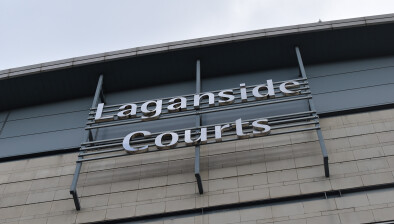NI: Belfast Crown Court: Man, 29, sentenced to 12 years for murder of 55-year-old friend
A 29-year-old man has been sentenced to 12 years’ imprisonment for the murder of a 55-year-old man who he described as being “kind to everyone” and someone who would “give you his last penny if he had it”.

About this case:
- Judgment:
- Court:Crown Court
- Judge:Judge Adrian Colton QC
Considering the appropriate tariff after mitigation to be one of 15 years, Mr Justice Adrian Colton reduced the sentence to 12 years in recognition of the early guilty plea.
Background
On Friday 6 July 2018, David Robert Boyd spent the evening drinking alcohol and watching television at the home of Richard Gerard Scullion. That night, Mr Boyd attacked Mr Scullion, repeatedly hitting him with a frying pan, punching and kicking him, and then stabbing him in the back at least six times.
Mr Scullion’s body was found by a friend on Monday 9 July 2018. The post mortem report found that the main cause of death was bleeding into the chest cavity, which had been caused by multiple stab wounds – one of which had penetrated Mr Scullion’s aorta.
Particularly tragic death
Mr Scullion and Mr Boyd had been friends for around two years – Mr Scullion was described as being “a man of great compassion and kindness towards others, particularly the homeless”, and that it was this feature of Mr Scullion’s personality “which endeared him to [Mr Boyd] and was the basis for their friendship”.
Mr Justice Colton said that all needless and senseless losses of life were tragic, but that Mr Scullion’s death was particularly tragic as it was caused by someone he befriended and helped.
In his police interviews, Mr Boyd “made repeated references to [Mr Scullion] being kind to him and to everyone”, and that Mr Scullion “would help anyone out and give you his last penny if he had it”.
Aggravating and mitigating factors
The prosecution submitted that the extensive injuries, the use of a weapon, and Mr Boyd’s previous convictions were aggravating factors which would justify a high starting point. The Court heard that Mr Boyd had 49 previous convictions, including aggravated assault, possession of an offensive weapon, and making threats to kill. He also had ten convictions for assaults on police. Mr Boyd was assessed as representing a high likelihood of re-offending and presenting a significant risk of serious harm.
Mr Justice Colton said that Mr Boyd’s record clearly demonstrated “a history and propensity to violence and a failure to respond to previous sentences”. As such, Mr Justice Colton said the appropriate tariff, before consideration of mitigation, was one of 17 years.
The Court heard that Mr Boyd had lived in care homes and hostels around Northern Ireland since he was 14 or 15, without any family support. Counsel for Mr Boyd pointed to the following mitigating factors:
- He showed genuine remorse;
- He pleaded guilty;
- He admitted killing Mr Scullion during police interview;
- At the time of the murder, he suffered from a mental disorder which lowered the degree of his criminal responsibility for the murder, although not affording a defence of diminished responsibility.
The prosecution took no issue with the relevance of these mitigating factors, and Mr Justice Colton said that the police interviews supported the contention that Mr Boyd was remorseful and that it was evident from the pre-sentence report that Mr Boyd presented with a deep sense of regret.
Considering the mitigating factors, Mr Justice Colton said the appropriate tariff before any discount for the guilty plea was 15 years imprisonment.
Discount for guilty plea
In considering a guilty plea in a murder case, Mr Justice Colton said it was necessary to take into account guidance from the Court of Appeal which stated that an offender entering a not guilty plea at the first arraignment is unlikely to receive a discount for a plea on re-arraignment greater than one-sixth, and that a discount for a plea in excess of five years would be wholly exceptional even in the case of a substantial tariff.
Although Mr Boyd pleaded not guilty at first arraignment, Mr Justice Colton said Mr Boyd’s case justified a discount of more than one-sixth because:
- Although in his initial interview Mr Boyd did not accept his role in Mr Scullion’s death, in subsequent interviews he admitted killing Mr Scullion and disposing of the murder weapon;
- At first arraignment, counsel for Mr Boyd assured the prosecution that the plea was entered pending the receipt of psychiatric evidence and it was accepted Mr Boyd had killed Mr Scullion. While the psychiatric evidence did not afford a defence of diminished responsibility, it did provide a basis for mitigation;
- After receipt of the medical evidence, arrangements were made for the re-arraignment of Mr Boyd which ensured that the trial date was vacated and no witnesses were required to attend at Court;
- Mr Boyd’s plea was also a factor supporting his remorse for his actions.
Having regard to these factors, Mr Justice Colton said it was appropriate to give a substantial discount and reduced the tariff from 15 to 12 years.









